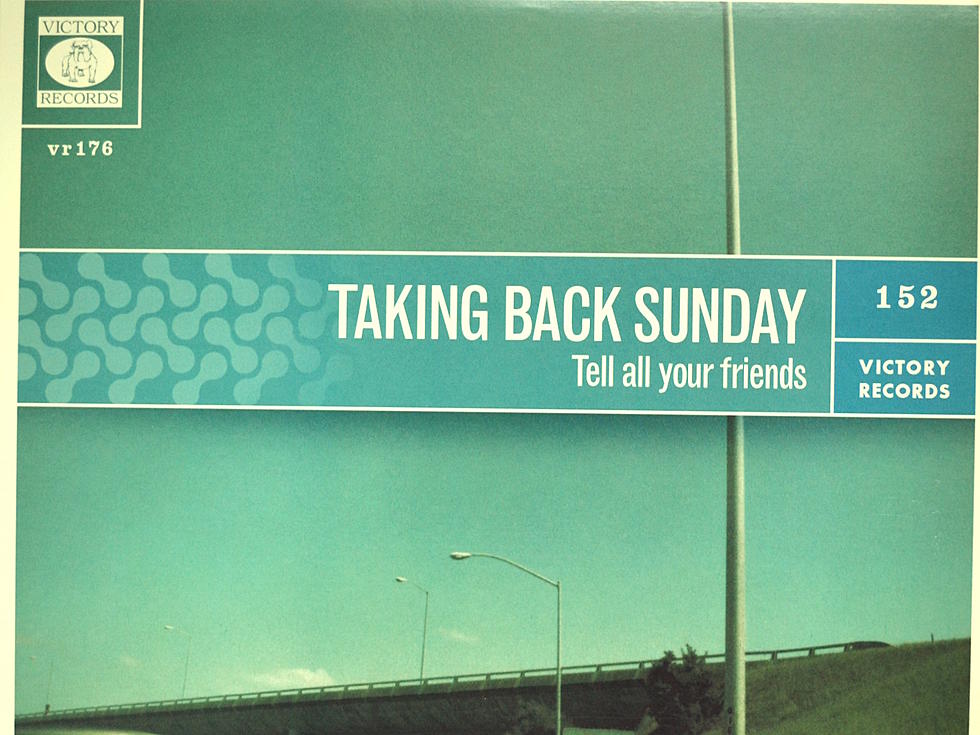
Why Wouldn’t a Reformed Emo Kid Like Mastodon’s Best Album?
We are nothing if we don't aspire to break down biases, and as such, we here at CLRVYNT are ready to fall on our swords in the name of journalism. Enter Editorial Bias, in which each reviewer is forced to confront a band in the canon that they do not care for, digging deep into a prized release and providing an analysis of their record. Tastes change, people change, but records are a constant. Our latest entry is Mastodon's Remission, which our reviewer is listening to in its entirety for the first time.
Here’s the thing: I’ve always thought that Mastodon were the corniest, most over-hyped metal group of the 2000s. For years, they represented metal’s most obnoxious aspects to me — the needlessly complex parts that do little more than show off how fast a guitarist can play, sandwiched with metal’s masculinity complex, i.e., nerds shunned from society turning to beards and viking imagery to reclaim their lost manhoods. By the time I had become more aware of metal in the larger scope, I was caught in the soundscapes of ISIS and Jesu, with the theatrically emotive sounds of DSBM from the likes of Shining and Totalselfhatred working as a holdover from my earlier days as an emo kid. Mastodon had little to offer me, their individual parts always available elsewhere, and always better.
So, of course, our EIC Fred Pessaro chose Mastodon for me to tackle, in exchange for me throwing him into the height of my sad boy emo phase with Taking Back Sunday. Fred picked Remission, a record I had skipped out on entirely, minus the inclusion of “Crusher Destroyer” on the soundtrack to Tony Hawk’s Underground. The obnoxiously dense arching stories of Blood Mountain and Crack the Skye seemed totally goofy by the time I became aware, and Leviathan might have been a little too easy. So, Remission — their arguably all-out heaviest work — seemed like the best option.
From the beginning of the album, hands-down the best part of this band for me was the drumming. Normally, drumming is usually the icing for me, never the core point of enjoyment. But the way Brann Dailor plays, he becomes the star of the band with what seems like relative ease. Simple fill transitions become huge flourishes, an impressive and quick feat that seems effortless on his part.
The best parts of Remission are when the band lets themselves drift from the song structures and just kind of jam out. The soloing can be a little annoying at times. Take the riff at the end of “March of the Fire Ants” — while it's cool that it progresses from its earlier iterations, I wish they gave themselves a little more room to fuck around. Because when they let themselves go in “Ol’e Nessie,” there’s a genuinely great part in the end, where the technical bits work in that midpoint between really heavy and really pretty.
What bothers me the most are the vocals. Very rarely did it feel like it they added anything to the songs, other than simply offering some kind of singing. It ruins the mood for me on tracks like “Trainwreck,” where I kind of wished the guitars would just chug along on their own. They try out some singing on it, but it’s really ineffectual, not weird or powerful enough. I think there can be a lot of genuine emotion in screamed, harsh vocals, but they felt incredibly trite and shallow here.
The shorter songs on the record also don’t do too much for me, other than providing more showcases for Dailor’s drumming. The chugs are fine, sort of an interesting way of poppifying what the Melvins were doing, but the riffs never feel as strong as what Buzz and company came up with. Closer “Elephant Man” also confounds me; while what I enjoyed most from the record was when the band just sits back and jams, this one just kind of sucks. The guitar work gets super obnoxious, never creating what feels like a proper ending for the track. I almost kind of wish there was no abrupt transition into static, instead letting the guitars drone on instead of fade out.
It’s hard for me to say whether or not I actually liked the record. There were elements I dug: the aforementioned atmosphere for one, and there were a few good riffs sprinkled throughout. I can already foresee being bombarded with listening charts, and that "X album has more of what I’m looking for," "Mastodon explored that area later on in their career," etc. And on the whole, I can understand why this record got so many people into metal, and why people dig the band so much. Remission stands tall over all the sludge bands that came out by the truckful in the 2000s. Other than that, I really don’t think there’s much for me to come back to that I don’t already find other bands exploring in a fuller way. I’m definitely a lot more interested in what they’ve got up their sleeves, but not sold.
More From CLRVYNT









